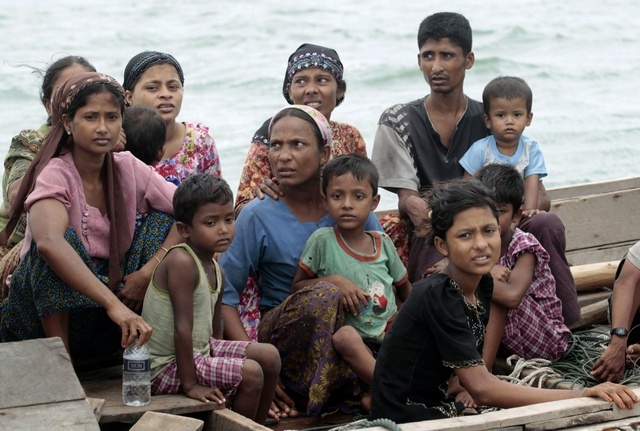It’s now 60 years since the United Nations pledged to protect displaced persons in a 1954 convention, however the number of individuals around the world who are without a nationality has surpassed 10 million.
The numbers continue to rise with war in the Middle East escalating and new risks of statelessness have emerged with the growing number of major conflicts across the globe.
On a mission to curb and end statelessness within the next ten years, the United Nations High Commission for Refugees (UNHCR) has initiated a worldwide campaign titled “I Belong”, signed and endorsed by celebrities such as UNHCR Special Envoy Angelina Jolie, Nobel Laureate Desmond Tutu and members of the diplomatic community across the world.
As the UN unveiled its ten-point action plan to end statelessness around the world, the UN High Commissioner for Refugees António Guterres pointed out that the campaign is to ensure that no child is born stateless.
“Statelessness makes people feel like their very existence is a crime,” said Guterres. “We have a historic opportunity to end the scourge of statelessness within 10 years, and give back hope to millions of people. We cannot afford to fail [in] this challenge.”
[related]
Closer to home, as persecution and discrimination continues for the Rohingya Muslims in Burma, rights advocates say statelessness is one of the root causes of their plight.
Matthew Smith from the NGO Fortify Rights told DVB that, “Statelessness is one of those predicaments that has a cascade effect on human rights violations, and we are seeing that with the Rohingya population.”
The Rohingyas live in a state of flux, caught between accusations of being illegal migrants in both Burma and Bangladesh. They have constantly been denied their basic rights of self-determination, their civil rights to be recognised as citizens of Burma, and do not qualify for rights to health, education or birth certificates in Burma.
“These are abuses that stems from the statelessness of the population,” points out Smith.
Under Burma’s 1982 Citizenship Law, the Rohingyas – or “Bengalis”, as many Burmese documents refer to the group – are not recognised as citizens of the state.
Derogatory conditions, coupled with violence and persecution bordering, some observers say, on the lines of “ethnic cleansing” have left the community stateless and vulnerable. Worsening conditions have prompted scores of Rohingya people to flee the country by sea on rickety boats, often a perilous or fatal journey. Only about a few weeks ago, the number of Rohingya boatpeople was estimated to have exceeded 100,000.
Many of those who manage to make it across to neighboring Thailand, India and Bangladesh are once again tossed into limbo, unwelcome aliens in those countries.
The UN agencies, signatories and human rights groups within Burma said they believe that by amending the 1982 Citizenship Law or by arriving at tangible legal solutions, the problems of the stateless refugees inside Burma can be fixed.
Vivian Tan, regional press officer for UNHCR in Southeast Asia, told DVB on Tuesday that the “I Belong” campaign aims to create awareness among the Burmese public regarding statelessness and thereby bring about policy implementation through influence of public opinion.
“In Myanmar, UNHCR is providing advice and helping to build the capacity of the government to address challenges related to citizenship,” said Tan. “We have a long-term ongoing dialogue with the government to bring the Citizenship Law in line with relevant international standards. We help to prevent statelessness from occurring by promoting birth registration and the issuance of other relevant documents. At the same time, UNHCR advocates for the respect of the fundamental rights of stateless people.”
But despite pressures from the international community, little has been done to address the plight of the Rohingyas. As the issue of statelessness becomes intertwined with the need for stability in Arakan State, Smith points out that, “If the Burmese government wants stability in Arakan state, they need to address this [statelessness] head on.”



